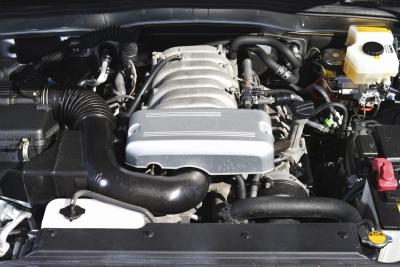
Catalytic converters are required in all automobiles by the Environmental Protection Agency. Cars burn fuel that release harmful gases. The catalytic converter contains pellets that turn the harmful gases passing through it into harmless gases. Catalytic converters can fail due to anything from normal wear and tear to serious damage caused by car accidents. A car mechanic should be able to tell what is wrong with the catalytic converter and whether or not it needs to be replaced.
Catalytic converters sometimes die because of thermal failure. Too much raw fuel hits the catalyst and burns in the catalytic converter instead of burning in the car’s engine. This overheats the catalytic converter and the first part to melt is the ceramic monolith. This causes exhaust path blockage, which weakens the engine. Mechanics can tell that the catalytic converter was fried by looking at the color of its outer shell.
The substrate--an electrodepositable layer within the catalytic converter--plugs up or becomes contaminated when the exhaust flow is filled with excessively rich mixtures of fuel and air, radiator sealant, oil or antifreeze. This plugging gets in the way of the catalytic converter’s normal operation, causing the exhaust to release dangerous amounts of hydrocarbons, carbon monoxyde and nitrous oxide.
Like with any part of the car, actual physical damage can cause the catalytic converter to stop working. This happens when a car accident causes the catalytic converter to sustain damage great enough to ruin the converter’s ability to function properly. Flow change characteristics and catalyst efficiency can be disrupted by this damage and the substrate can also be broken up.
Catalytic converters can be damaged by thermal shock. Thermal shock is caused by very hot catalytic converters suddenly coming into contact with very cold temperatures. The converter housing can suddenly contract, causing cracks to form on the catalytic converter. Also, the ceramic substrate can disintegrate. All of this results in the catalytic converter having a rattling sound.
Catalytic converters can be damaged when the car is not tuned up. Improperly tuned cars can be very rough on the catalytic converter and can cause damage. This can cause incorrect timing and can also cause the sparkplugs to misfire.
When spark plugs are not functioning properly, unburned fuel enters the exhaust system. The unburned fuel sets on fire and burns down the ceramic catalyst.